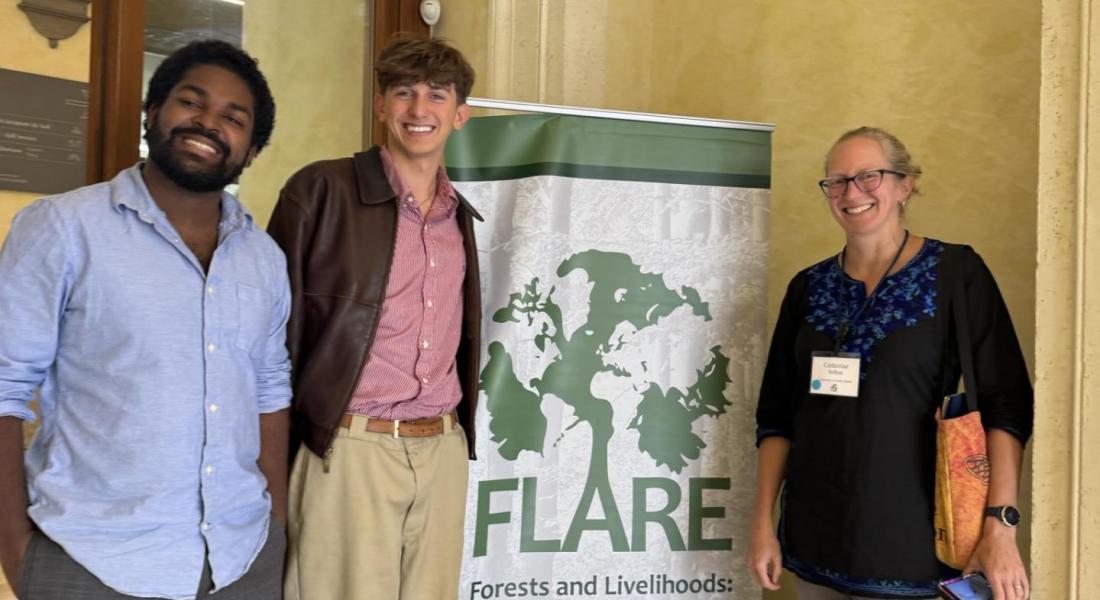
At the end of my sophomore year, in a meeting meant to say a brief goodbye to my research mentor and plan on our roles in the research while me and my co-research assistant were abroad, an interesting prospect emerged. Amidst her comments on how our work had been received by a nonprofit in Nepal, Professor Cat Bolten mentioned that she intended to present our work at a conference in Rome. She paused for a moment, and said, “Wait - you both will be in Europe. You should come!”
And that set us off. Thanks to the Kellogg Institute, I was able to aid in the presentation of the work we had been doing in a presentation titled “Savior or Silent Threat? Preliminary Investigations into Eucalyptus and the Green Transition” in a three-paper panel on forest plantations. Our preliminary findings find that eucalyptus has harmful environmental impacts that drive out competition as an invasive species on top of harmful human impacts in exploitative land contracts that take advantage of indigenous populations. I had spent a semester immersed in this world of studying the pervasive nature of eucalyptus in forestry, development, and economic innovation, growing absolutely horrified about the ability of this plant to destroy communities and livelihoods wherever it went.
However, I quickly realized that this was not common opinion in various research fields. In many policy proposals at the end of presentation at the conference eucalyptus was one of the main solutions for problems ranging from deforestation to flood management. Eucalyptus appears in the data as an effective solution to these issues, but when talking to people affected by the plant, the story changed. Within this context, I knew our presentation would challenge some notions that had been popular throughout the weekend.
Our session was full of new insight about forest plantations and their impact on biodiversity and energy poverty, including our findings on the harmful nature of eucalyptus. The vast majority of the panel attendees found similar horror in the adverse environmental and social effects of this colonial plant that has been touted as the savior that our climate desperately needs. There was, though, minor push back with some of our results and conjectures. As with all good research, there is pushback, and this pushback must be met with a resolve to lean into it to make the research better - more whole.
We came out of the conference with a network of professionals from all sectors of forest research and management, including academics, activists, and representatives from international organizations that are concerned about a just climate transition that does not harm communities with a plant that is pitched as an easy fix.
Going into the conference, I expected controversy, and there was - but what I learned was that good research fills in gaps and creates new ones, and the work made toward this developed into a community committed to identifying where more information needs to be sought, and began to lay the groundwork for forest policy that centers people, a forest policy beyond eucalyptus.





